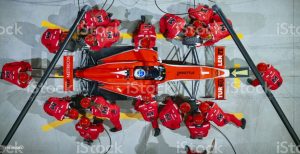This is new blog-Don’t miss out!
There is always low-hanging fruit; you need to identify and get it

Global supply chain blogs
About the Author
 Vivek Sood: Sydney based managing director of Global Supply Chain Group, a strategy consultancy specializing in supply chains. More information on Vivek is available on www.linkedin.com/in/vivek and more information on Global Supply Chain Group is available www.globalscgroup.com
Vivek Sood: Sydney based managing director of Global Supply Chain Group, a strategy consultancy specializing in supply chains. More information on Vivek is available on www.linkedin.com/in/vivek and more information on Global Supply Chain Group is available www.globalscgroup.com
Vivek is the Managing Director of Global Supply Chain Group, a boutique strategy consulting firm specialising in Supply Chain Strategies, and headquartered in Sydney, Australia . He has over 24 years of experience in strategic transformations and operational excellence within global supply chains. Prior to co-founding Global Supply Chain Group in January 2000, Vivek was a management consultant with top-tier strategy consulting firm Booz Allen & Hamilton.
Vivek provides strategic operations and supply chain advice to boards and senior management of global corporations, private equity groups and other stakeholders in a range of industries including FMCG, food, shipping, logistics, manufacturing, chemicals, mining, agribusiness, construction materials, explosives, airlines and electricity utilities.
Vivek has served world-wide corporations in nearly 500 small and large projects on all continents with a variety of clients in many different industries. Most of projects have involved diagnostic, conceptualisation and transformation of supply chains – releasing significant amount of value for the business. His project work in supply chain management has added cumulative value in excess of $500M incorporating projects in major supply chain infrastructure investment decisions, profitable growth driven by global supply chain realignment, supply chain systems, negotiations and all other aspects of global supply chains.
Vivek has written a number of path breaking articles and commentaries that are published in several respected journals and magazines. Vivek has spoken at several supply chain conference, forums and workshops in various parts of the world. He has also conducted several strategic workshops on various aspects of supply chain management. He received his MBA with Distinction from the Australian Graduate School of Management in 1996 and prior to these studies spent 11 years in the Merchant Navy, rising from a Cadet to Master Mariner.
More information on Vivek is available on www.linkedin.com/in/vivek and more information on Global Supply Chain Group is available on www.globalscgroup.com
Introduction
Introduction: The phrase “always low-hanging fruit” is an expression that has become increasingly popular in the business world. It refers to opportunities that are not necessarily difficult or expensive to take advantage of but can provide tremendous rewards if done correctly. This could be a chance for a company or individual to fill a gap in the market, take part in an emerging trend, or create innovative solutions for existing problems. In this essay, I will discuss how identifying and taking advantage of low-hanging fruit can lead to great success.
To identify potential low-hanging fruit opportunities, it’s important to constantly assess your environment. This means looking at what other businesses are doing and seeing if something similar can be applied in your industry or field.

Content
What does it mean to find the low-hanging fruit?
Finding the “low-hanging fruit” is an important concept in personal and professional development. It is frequently used to refer to goals that are easily achievable with minimal effort. Low-hanging fruit can be found in many different areas of life, such as time management, task completion, career advancement, and even relationships. Identifying it requires having a clear vision of what you want to accomplish and knowing how far you are from achieving it.
In terms of time management, finding the low-hanging fruit could mean making simple changes like setting aside specific times for certain tasks or activities or scheduling your day in advance. In terms of task completion, it could mean breaking down large projects into smaller chunks and tackling those one at a time.
Pros and Cons
Pros

The proverb “There is always low-hanging fruit; you need to identify and get it” is an apt metaphor for achieving success in any professional endeavor. To succeed, one must be constantly on the lookout for opportunities that can easily be seized upon. This notion of seizing the proverbial low-hanging fruit represents the potential to gain advantages from minimal effort. By taking advantage of these opportunities, professionals can make substantial progress toward their goals without expending much time or energy.
Identifying and procuring such low-hanging fruits requires a proactive attitude and a keen eye for potential outcomes. At its core, this means staying informed about trends in one’s particular field and being alert to signs that may indicate new opportunities or challenges.
Cons
Low-hanging fruit can be a great way to get something accomplished in life. It is something that is easily accessible and achievable, so it can be a great starting point for many projects or goals. However, it is important to remember there are cons to this approach as well.
For one, low-hanging fruit may not always equate with an accomplishment that has long-lasting value. For example, completing easy tasks in the workplace might show short-term productivity but could lack true value that lasts over time. Additionally, some of the rewards associated with low-hanging fruit may be limited and thus not provide as much satisfaction or gratification compared to achieving more difficult goals.
Low-hanging fruit should be identified as part of any goal-setting process, but should never become the main focus when seeking success in life.
Importance;
Identifying and obtaining low-hanging fruit is essential for success. Low-hanging fruit is the easiest to obtain and offers the most significant rewards. It applies in every field of endeavor—whether one is looking to increase productivity in their business, or just hoping to become a better person. To be successful, one needs to find and pick those low-hanging fruits which are within easy reach.
The importance of identifying and obtaining low-hanging fruit cannot be overstated. Firstly, it can provide an individual with a sense of accomplishment that motivates them further towards their aims or goals. Secondly, it sets the stage for future success by developing confidence in oneself and showing one how easily progress can be made without excessive effort. Lastly, it acts as a foundation for more difficult tasks as one has established momentum which will help reduce the obstacles they need to overcome next time around.

Purpose:
No matter how complex your goals may be, there always exists an opportunity to make small gains that can lead to larger accomplishments. This idea is represented in the proverb “There is always low-hanging fruit; you need to identify and get it”. For me, identifying this low-hanging fruit requires a certain sense of purpose and intent. I have found that if I pause to meticulously assess my goals and tasks, I can identify those small changes that will bring me closer to achieving them with minimal effort. Whether it’s learning a new skill or taking on additional responsibilities at work, proactively seeking out these opportunities helps me stay focused on the results. Low-hanging fruit does not come automatically; rather it needs to be actively sought out and this requires me to prioritize purposeful action over immediate gratification.
Example:
One example where union involvement did not benefit their members is the United Auto Workers (UAW) strike against General Motors (GM) in 2019. The UAW went on strike in September 2019 after negotiations with GM broke down over issues such as wages, healthcare benefits, and job security. The strike lasted for 40 days and resulted in a new contract agreement between GM and the UAW.
However, despite the strike and the new contract agreement, some UAW members felt that the union did not represent their interests effectively. One major issue was the lack of transparency in the UAW’s handling of the strike funds, which are intended to support striking workers with financial assistance. Some UAW members reported that they did not receive the full amount of strike pay that they were entitled to, while others reported that they did not receive any strike pay at all.
Additionally, there were reports of corruption within the UAW leadership, including charges against former UAW President Gary Jones and other union officials for embezzling union funds. This scandal damaged the reputation of the UAW and led some members to question whether the union was truly representing their interests.
Low-hanging fruit is a metaphor that can be applied to many aspects of life, and it demonstrates the value of taking advantage of easy opportunities. For example, when seeking employment, new graduates often focus on applying for highly competitive roles. However, there can be a greater success if they consider also looking for roles that are not as competitive or difficult to get into. By considering these types of positions which may require fewer qualifications or are only open due to staff turnover, it may prove easier to secure an interview and demonstrate their potential to progress.
Similarly, in business, low-hanging fruit refers to growth opportunities that take little effort for maximum reward.
Conclusion
In conclusion, the idea of low-hanging fruit is an important concept that applies to many aspects of life. Taking the time to identify and obtain these opportunities can lead to greater rewards in life and can provide a range of benefits, including improved financial security, personal development, and increased happiness. As individuals strive towards their goals and ambitions, it is essential to recognize when there are potential areas for growth that present themselves conveniently. Low-hanging fruit should be recognized for its usefulness in helping people reach their objectives quicker and easier than otherwise possible. By taking advantage of such resources when they become available, one will not only benefit from the immediate gain but also enjoy long-term success in whichever field one choose to pursue.
Introducing.....

The global supply chain of products is an immense and complex system. It involves the movement of goods from the point of origin to the point of consumption, with intermediate steps that involve resources, materials and services to transport them. A supply chain encompasses activities such as purchasing, production, distribution and marketing in order to satisfy customer demands. Companies rely on a well-managed supply chain to meet their business goals by providing quality products and services at competitive prices.
Efficiently managing a global supply chain requires considerable effort, particularly when dealing with multiple suppliers located around the world. Complex logistics tracking systems are needed to monitor product movements from one place to another. Technologies such as artificial intelligence (AI) can help companies keep track of shipments across different locations for greater visibility into their processes.
what did Our Reader say?

GARRY BADDOCK
Chief Operating Officer Graphite Energy
I have experience with many of the well-known top-tier strategy firms but chose Global Supply Chain to support me on my supply chain projects. They always meet and exceed my expectations due to the quality of the work, the ability to work collaboratively with internal teams, and the flexibility to adjust the project approach when required.

PHILLIPPE ETTIENNE
CEO - Large Global transnational corporation From: FOREWORD - OUTSOURCING 3.0
When I engaged Vivek’s services for supply chain transformation in one of the companies I was heading, we expected the careful and methodical approach that he was famous for... I was pleased to note that the original target set for 3 years was surpassed by almost 70% in just 18 months.

TONY FEDOROWICZ
Vice-President Supply Chain Asia Pacific
I have used their services for several business transformations and workshops in many companies. Each time an outstanding workshop and project result was delivered ensuring the success of the business transformation project. Savings surpassed $25 Million per annum in one case. Very powerful ideas, were implemented very diligently.

Jean-Briac Le Dean
Co-Founder & Agen
Vivek is a very collaborative and open leader who leads teams by example. Whether internal teams, or clients teams, all are impressed by his intensity, energy level and drive to make things a little better.

Lorna Calder Johnson
Omni-Channel Product Marketing
P & L Executive
Vivek's transformation expertise is apparent from his results and dedication to operations and supply chains. His strategic expertise, knowledge and network make him a standout even among an excellent team.
Related Posts
Click below to see related posts.

The Impact of Plummeting Shipping Container Prices Across Industries
Explore the far-reaching consequences of plummeting shipping container prices on diverse industries, revealing the intricate connections shaping global trade, supply chains, and economic landscapes.

Race Day Logistics: Intricacies of Pit Stop
Explore the race day’s heartbeat: the art of pit stops. Uncover the intricate logistics orchestrating split-second tire changes, refuels, and strategy adjustments that define Formula 1’s high-speed drama.

Mastering Travel Logistics in Formula 1 Racing
Discover the art of flawless travel logistics in the high-speed world of Formula 1. Uncover how precision planning and real-time coordination keep teams on track across the global circuit.
